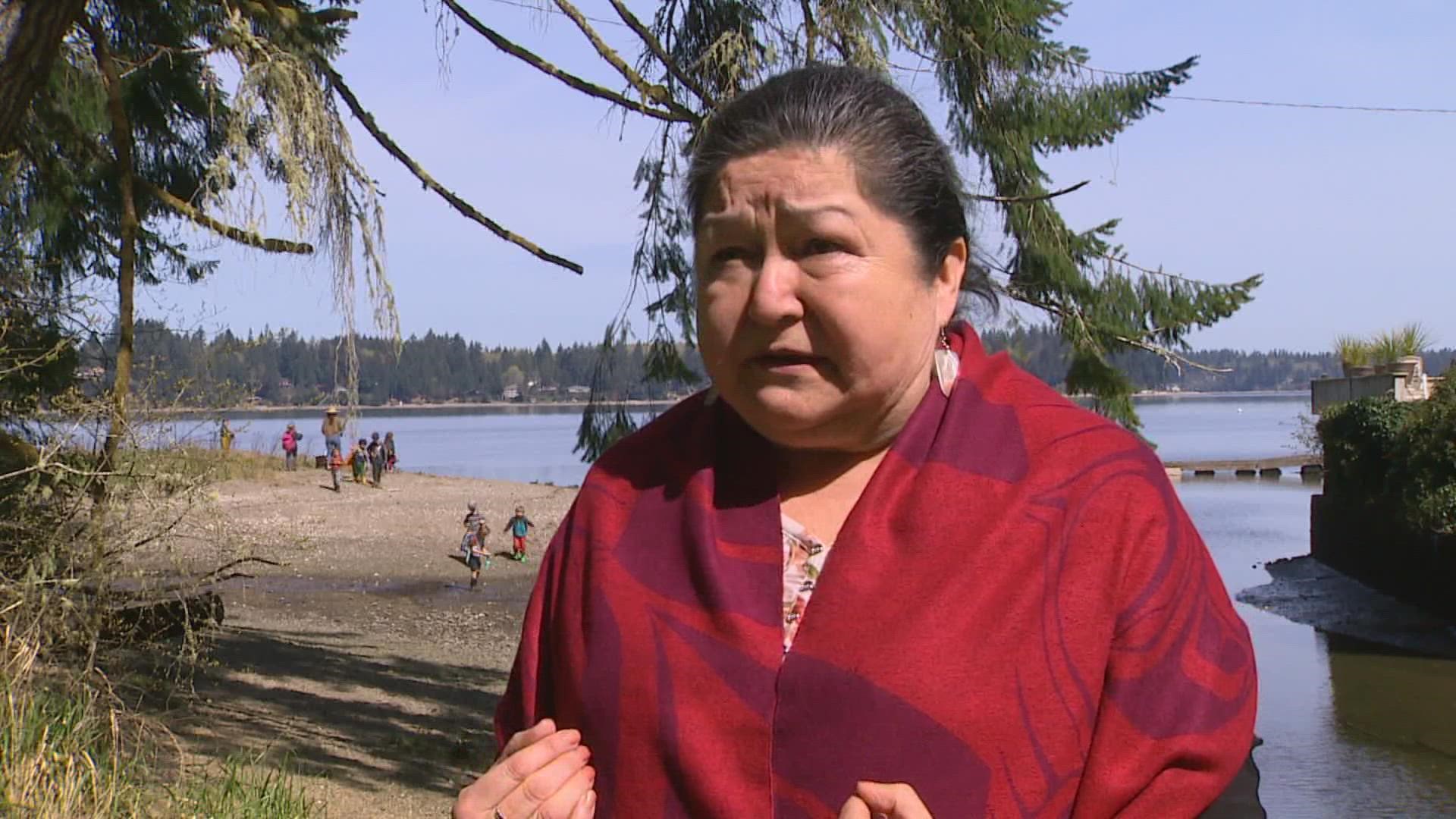OLYMPIA, Wash. — A state committee is sending a letter to the Department of Interior (DOI) voicing its opposition to the process the department has proposed to remove the derogatory word “sq---" from geographical place names.
The word was declared derogatory by DOI Secretary Deb Haaland late last year in an order that also mandated its removal from more than 650 place names across the country.
In late February, the DOI proposed renaming 18 geographical locations in Washington state whose names contain the word, submitting a list of five possible new names for each location to be considered by the newly formed Derogatory Geographic Names Task Force.
Per Haaland’s order, the task force must conduct public outreach as well as seek input through Tribal consultation to get feedback on the new names and potentially add options.
After this period, the task force is expected to gather its findings and submit its proposal for the name changes to the DOI’s Board of Geographical Names (BGN). The BGN will then make a decision on the replacement names.
The entire process, from the time the task force receives the list of name change proposals to the BGN rendering its final decision, is required to last no more than eight months, according to Haaland’s order.
However, the Committee of Geographical Names within Washington’s Department of Natural Resources is sending a letter voicing its disapproval of the process, which it feels is too hasty.
The committee met on Thursday to vote on the matter, unanimously agreeing to send Chairwoman Sara Palmer’s letter that claims “there is a fundamental disconnect between the implementation of [Haaland’s order] and our existing state process as designed by Washington’s Legislature.”
“We must object to the process as currently proposed,” the letter states.
Among the various problems the committee finds with Haaland’s proposed process, is the lack of time it allows to gather Tribal feedback, which is only allowed 90 days under her order, as well as thoughts from the public, which is given 60 days to respond to the potential new names.
Also, the committee opposes particular names the DOI is proposing, questioning how the name changes will honor the individuals and culture of the state’s past.
“Replacing names referring to Indigenous women with names such as ‘White,’ ‘Columbia,’ ‘Bonneville,’ and ‘Franklin Delano Roosevelt,’ as proposed in Interior’s draft replacement names list, is not an appropriate solution,” the letter reads.
The committee said it has taken steps to comply with Haaland’s order by agreeing to meet at least once quarterly to ensure the renaming of geographical places across the state with “sq---” in their name. Still, the committee states that it believes the discussions necessary to determine new names for these sites “will probably take at least the next two years.”
During Thursday’s committee meeting, Palmer and other committee members reiterated their commitment to getting public feedback on the issue.
“We really do want to get those public proposals,” Palmer said, adding that the committee can only comment on what the DOI does. “We want to commemorate Indigenous women on the landscape. That’s really important to all of us.”
Barring any changes to the DOI’s process for renaming these sites, the public has until April 25 to comment on the proposed name changes.

